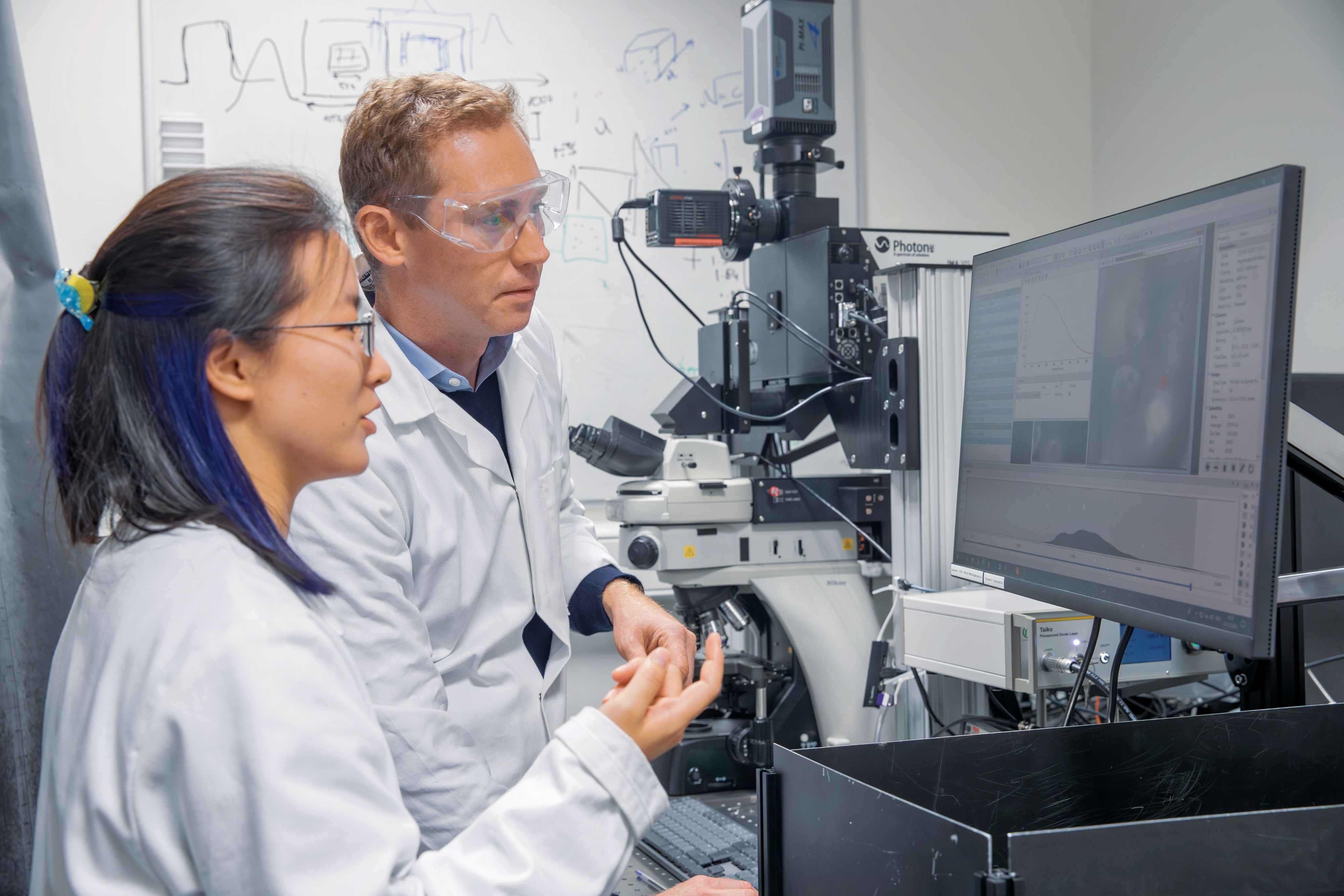Securing millions for renewables
CEB researchers secure €3 million grant for next generation of sustainable energy solutions

A team of researchers led by senior academic Sam Stranks, from the Department of Chemical Engineering and Biotechnology (CEB), has been awarded €3 million to develop new technologies aimed at tackling global challenges in sustainability and energy.
The project, VAPOURISE, has been allocated the substantial award by the European Research Council (ERC) Consolidator Grant to develop cutting-edge perovskite semiconductors, a promising class of materials known for their exceptional efficiency and versatility.
By harnessing advanced vapour-based manufacturing methods, the research team aims to address critical areas such as renewable energy generation, green chemical fuel synthesis, and quantum technologies, with potential applications that could transform sectors from energy to quantum computing.
Prof Sam Stranks highlighted the project’s potential impact:
“The green energy transition depends on us finding more efficient and scalable ways to generate and store renewable energy."
He added: "VAPOURISE will help us to develop sustainable materials and processes to achieve these goals, while exploring exciting new applications such as quantum computing and green chemical production."
Central to the project is the development of high-performance solar cells with efficiency levels exceeding 35%, a significant leap beyond current technologies. The team will also apply their innovative materials to develop new technologies to convert carbon dioxide into valuable chemicals like ethylene using sunlight, offering a sustainable solution to energy and chemical storage.
Additionally, VAPOURISE will create advanced components for quantum computing, such as reliable single-photon emitters, which could realise extremely high efficiency computers with capability far surpassing today’s computers.
The research will rely on novel vapour deposition techniques to fabricate high-quality perovskite materials, combining different configurations of halide and chalcogenide perovskites to optimise performance and durability. The team will use modern analytical tools as well as artificial intelligence to study how these materials function at different scales and over extended periods, ensuring their scalability and stability for real-world applications.
This ambitious interdisciplinary effort, driven by a combination of chemical engineering, physics, and materials science, and leveraging collaborations in Cambridge and worldwide, reflects the department’s commitment to addressing some of the most pressing challenges of our time.
The ERC Consolidator Grant – one of the most prestigious and high-profile – underscores the groundbreaking nature of the VAPOURISE project and its potential to deliver transformative solutions in energy and beyond.
